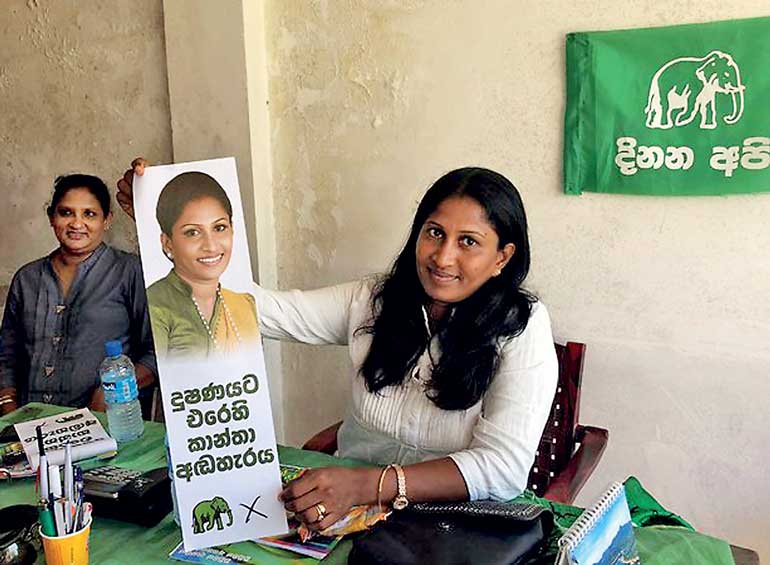Sunday Feb 22, 2026
Sunday Feb 22, 2026
Monday, 12 February 2018 00:00 - - {{hitsCtrl.values.hits}}

NYT, Kotte, Sri Lanka: Madhu Hettiarachchi has no time right now for the brain surgery her doctors have recommended. She’s busy trying to take advantage of an unprecedented chance to get women elected in Sri Lanka.
After more than a generation of struggle by women’s rights activists, Sri Lanka’s patriarchal political scheme has, reluctantly, opened up a bit to require that 25% of candidates in local elections be women. Their representation in this island nation, still reeling from a protracted civil war, remains at a miserable 2% of local government posts, though women make up more than 51% of registered voters.
When the country goes to the polls on Saturday, a quarter of the 56,000 candidates will be women. In the process of running, many have faced abuse that includes sexual assault, intimidation and character assassination. Religious leaders have openly urged their congregations not to vote for women. But for Hettiarachchi and other political activists, there is no going back.
“We have fought for this for two or three decades,” Hettiarachchi said, her eyes gleaming with excitement. “It’s not an easy thing. But this is a turning point.”
Ms. Hettiarachchi, 49, runs a horticulture export business and volunteers at Mothers and Daughters of Lanka, a coalition of women’s organisations. But the work that has driven her to put off surgery for a dangerous leak of cerebrospinal fluid has been helping 11 candidates, mostly around the Kotte suburb of Colombo, the Sri Lankan capital.
Only half of them belong to her United National Party. The rest are all independent candidates, joined with Hettiarachchi in the cause of seeing more female leaders in a society where some developmental indicators have been improving but where opportunity for women has changed little.
The lead-up to the vote has confirmed some of Ms. Hettiarachchi’s concerns. The female candidates are confronting not only the society’s conservative beliefs, but also deeply entrenched structures of their own parties that often set them up for failure. And widespread abusive behavior against the new candidates has been chilling - though some activists have credited the authorities with being more alert and responsive than usual, possibly preventing outright violence in some cases.
“Men in Sri Lanka have for too long dominated politics, and they are now, I think, experiencing delayed shock and denial,” said Chulani Kodikara, a researcher and doctoral candidate at the University of Edinburgh.
“I think the backlash is manifesting in many different ways - from parties not taking the quota too seriously, and therefore not giving sufficient nominations to women at the ward level, to some political leaders telling voters not to vote for women and some Muslim religious leaders trying to make a theological argument against women coming into politics,” Ms. Kodikara said.
She added, “I don’t think we know the full extent of the backlash and might have to wait till after the elections and some proper documentation.”
Ambika Satkunanathan, a commissioner at Sri Lanka’s independent human rights commission, said the introduction of the quota was already having an effect as more women have stepped up to run, their challenges fueling a national conversation. But even if they are elected, that alone will not be enough, she said.
“I think also important is after they come to office, after they are elected, how will they perform? Because the structures will remain, the culture will remain within the local council, within local municipalities and political parties,” Ms. Satkunanathan said. “So how are they going to challenge that? We may have elected women, yes that is great. But if they toe the party line, if they are controlled, what is the point?”